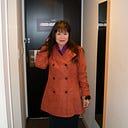Money, Monks, and Good Luck hr677
Although I don’t regard myself as a believer in Buddhism, I visit a nearby temple once a year as a custom with lots of wishes for the new year when snow melts away at the end of a long harsh winter. I toss a one-yen coin into an offertory box, ring a bell that is dangled under the eaves, and pray for a few minutes.
Kyoto, where I was born and raised, is renowned as a historical city that had been the capital of Japan for over one thousand years. Historic landmarks are everywhere, most of which are temples and shrines. In that kind of city, especially a rural town like the one that I’m from has a strong relationship with a local Buddhist temple in the hamlet. The temple that my family served as one of its main parishioners was one block away from home and I used to have quite a few occasions to go there when I was little. The temple had a cemetery of the family’s ancestors in the hamlet on its premises and managed it. Inside the temple, a variety of gatherings were held, such as a meeting of main parishioners, a lecture meeting for elderly men and women separately, and sometimes a wedding or a funeral. The chief priest of the temple lived at the site, who preached the teachings of Buddha at the meetings and read the sutras at a funeral or a memorial service that was held for the deceased in a family every several years. The sutras are intoned monotonously, of which contents and meanings I can’t make nothing, and are supposed to purify people’s minds and give repose to the deceased’s soul. Although listening to them should be a boon, all I felt physically would be pain in my legs as we usually didn’t sit in a chair but had to sit our legs bent beneath us on the tatami floor, and mentally would be a wish for the sutras to end soon.
When I was a child, the folks in my hamlet respected the old chief priest of the local temple because his preaching convinced them that he had learned the Buddhist scriptures well and disciplined himself accordingly. However, the new young priest who took over his predecessor’s duties had fallen into disfavor. He preached irrelevantly and incorrectly, buttered up main parishioners with tacky flatteries, and urged unnecessary memorial services on which decline he threatened the family to be cursed. While I understood he must have had financial difficulties, he looked like a salesman rather than a priest. Other than the one in my hamlet, monks were spotted easily around the city as there were many temples in Kyoto. When I was in my late teens and worked part-time at a steak restaurant, I often saw a skinhead man wearing a monk’s stole, who I hoped wasn’t a real monk but just cosplayed which was sadly unlikely, have an expensive steak and beer in the middle of the day and leave by driving a luxury car. Ascetic monks in the Buddha era fasted at the risk of their life or buried themselves in the ground to seek the truth of spiritual enlightenment. Compared to those who tried to hear the voice of God abstinently, it seemed that monks in modern times cherished money over God. It’s not fair to blame only monks, though. We may have lapsed into the same state as them.
I create my songs by squeezing everything I got and taking years per song, in order to dedicate them to the Higher Power of the Universe that I call it. I don’t know exactly what it is but I feel its existence from my experiences in which something must have watched over and helped me by making unexpected things happen and giving me hope with that. Since it looks on me and gives me benefit, I should show gratitude and repay it with what I could possibly do. Then, that calls forth good luck, I suppose. Because I don’t think money brings happiness, I would be happy if I were being a blessed person.
